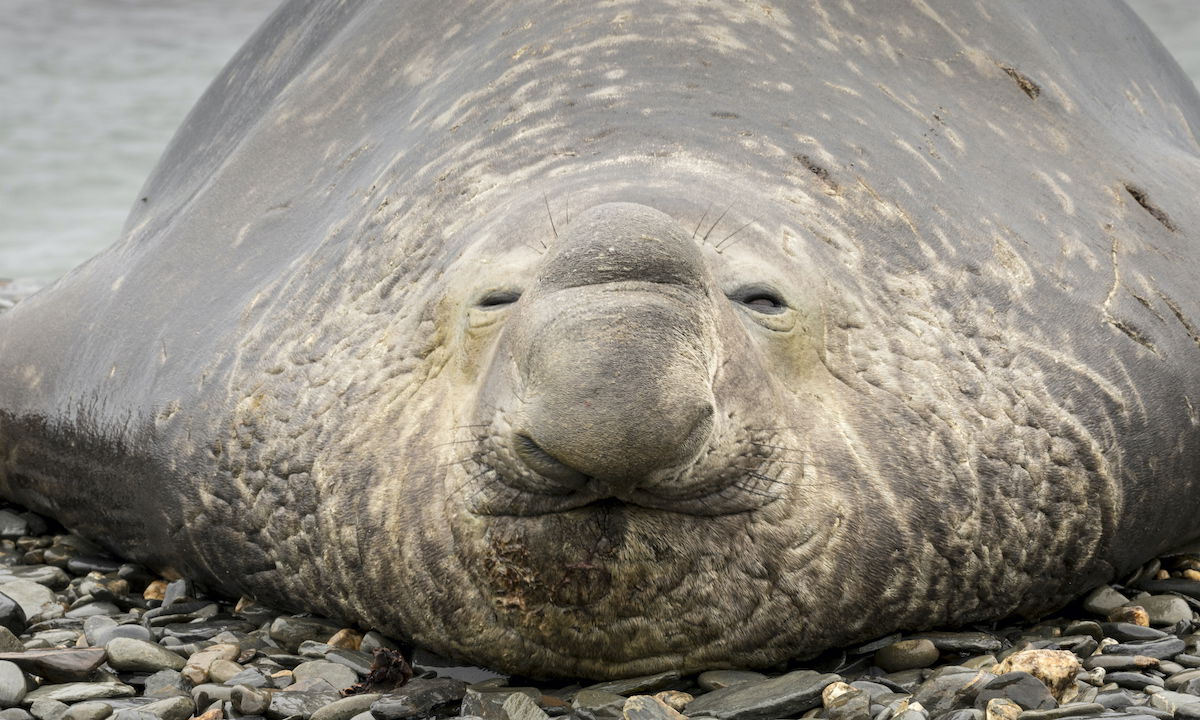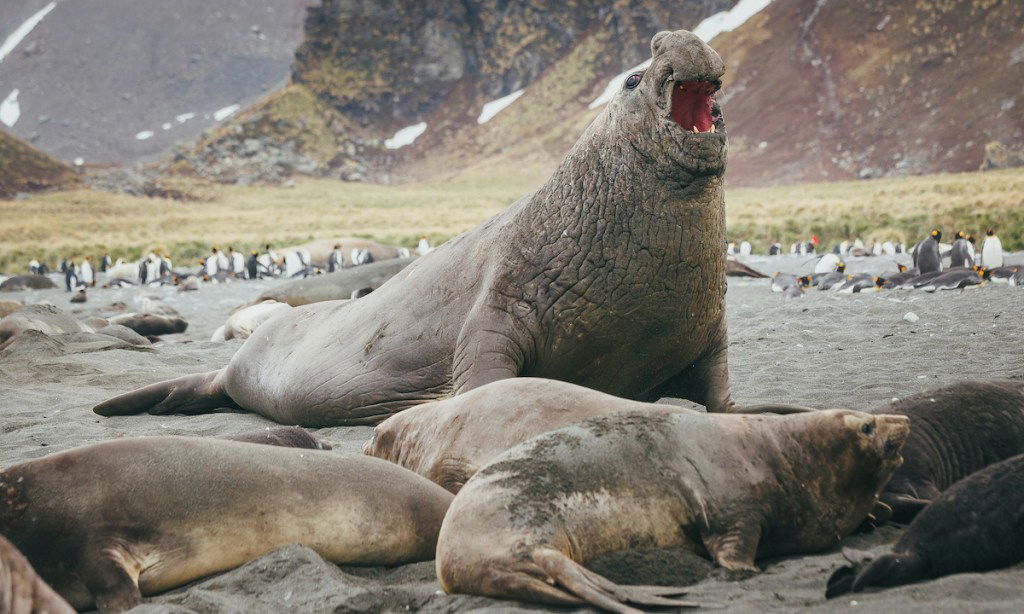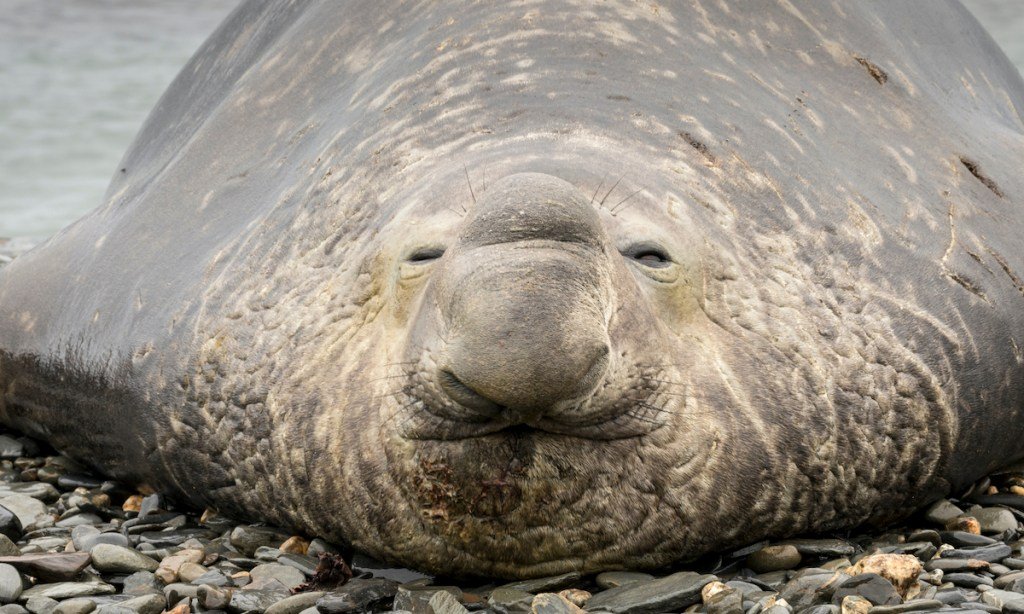

According to a new study, elephant seals may be dying off because of a dangerous obsession with snacking.
Videos by Outdoors
The obsession with food comes from an evolutionary drive to gain as much weight as physically possible. Basically, the bigger a male seal is, the more likely it is to beat all the other male seals for control of the females. If you’re a male elephant seal and you want to get with the ladies, you have to sumo wrestle for dominance. Which means becoming the head honcho is basically an eating contest.
Elephant seals often weigh upwards of 4,500 pounds and can be extremely aggressive. While they rarely attack humans, they have been known to charge the occasional beachgoer.
The problem with the seals’ get-big-quick strategy that the best places to find food are usually in shallower waters—a favorite hangout of sharks and other ocean predators. That leaves male seals with a dangerous Catch-22: The only way for a male to gain enough weight to survive territorial battles with other males is to get huge. And the only way to get huge is wander into shark-infested waters in search of fish.

The other issue is that becoming a “beach master,” i.e., the guy in control of a harem of females, is no easy task. These harems can include up to 100 lady seals, report reports The Guardian. If only one male seal per every 100 females gets to breed—well, those are pretty slim odds for the males. Hence the overwhelming drive to become sumo-ready as fast as possible.
As you might expect, braving sharks in search of food isn’t a fast track to a long life. The study, led by a Tasmanian researcher and published in Royal Society Open Science, found that male seals were six times more likely to die than females.
Elephant seals aren’t the only animal with a potentially unhealthy sex obsession. Earlier this year, Australian researchers found that male northern quolls spend so much time looking for females during the mating season that they don’t take time to eat or sleep. The male quolls have essentially been mating themselves to death—not good news for the endangered species.
Researchers don’t appear to have a clear answer as to how this new information can help conservationists protect the seals (or the quolls, for that matter). Fortunately, elephant seals are not currently threatened or endangered. So, for now, you can simply file away the results under “weird animal facts of 2023.” You’re welcome.










